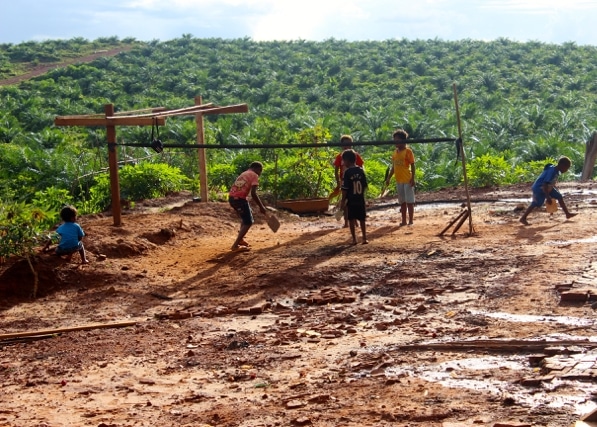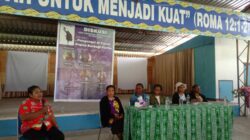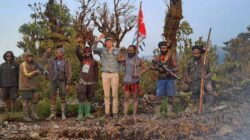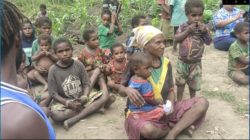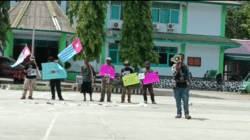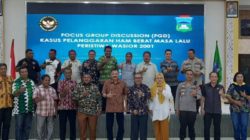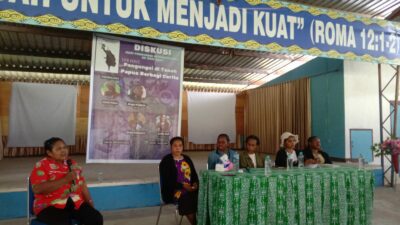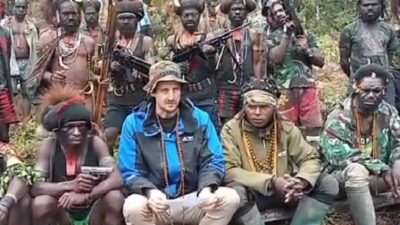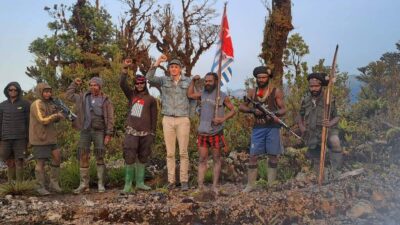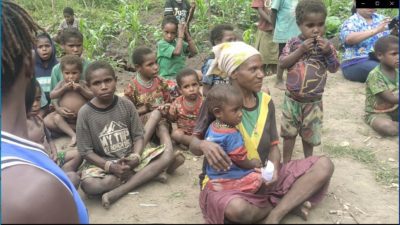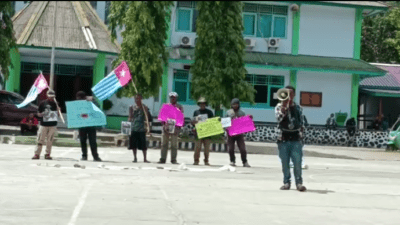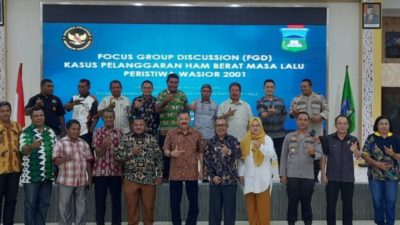
Jayapura, Jubi – Delays in granting new licenses and improvements in management of primary natural forest and peat land are a policy that required commitment from multi-stakeholders in order to postpone number of proposed forest utilization new licenses.
This is important in order to reduce carbon emissions of forest degradation and deforestation in Indonesia, as stated by Friends of the Earth (Walhi) Papua in its press release recently.
“The SBY government has issued Presidential Instruction No. 6/2013 regarding the postponement of new licenses to improve the management of natural forests and peat lands,” said Aiesh Rumbekwan, Director of Walhi Regio Papua and West Papua in a press conference on Friday (May 12) .
Rumbekwan said President Jokowi’s stated his commitment in a speech at the conference of the parties (COP 21 UNFCCC) in Paris 2015. He promised to commit to reduce greenhouse gas emissions by 29 percent Business as usual in 2030 and 41 percent with international support.
This commitment is downgraded by Presidential Instruction No. 8/2017 that would delays the granting new licenses and improvements in primary natural forest and peat land management.
“This is done after seeing the fact that expansion of extractive industry on primary natural forest and peat lands continues to occur and tends to increase over time,” he told to the press.
He added despite the policy of moratorium on forest and peat land utilization’s permit, the fact that expansion of extractive industry in Papua is still quite high, especially on oil palm plantation sector.
So far, it seems that there is no certainty that there will be any extension of delay or reduction or even cessation of extractive industry expansion on primary natural forest and peat land in Papua, according to the essence of the moratorium. Meanwhile, he said presidential instruction No.8 / 2015 itself end on May 13 2017.
“The new permits issued by the government to extractive industries, especially oil palm plantations and mining in the period of postponement/moratorium are considered to be a form of political economic conspiracy between corporations and the government. The example of what happened between PTPN II Arso and indigenous people in Keerom is the proof, “Rumbekwan said.
This is followed by the issuance of PP 13/2017 on the amendment to PP No.26 / 2008 on the national spatial plan which is considered as inconsistent with Indonesia commitment and international.
Meanwhile, according to Foker NGO Papua, Decky Rumaropen the impact that will occur is the granting of licenses without complying with the policy of moratorium will raises resistance of indigenous peoples to defend their rights to land and natural resources which are often politicized with criminalization.
“The fact that many people who are victims of investment by government and corporation lose their land right and management rights, especially natural resources as their livelihood,” said Rumaropen.
Observing the condition, Walhi and Foker Papua NGOs asked the Papuan and West Papua governments to stop recommending extractive industrial companies to invest in Papua. It considered does not provide any benefit to the indigenous people.
Walhi Papua and Foker NGO Papua will fight against the potential of forest degradation and deforestation that increasingly leads to prolonged conflict among the people that even cost lives.
Furthermore, they requested the Government of Papua and West Papua to make a real effort through local regulation in order to save the people and forests of Papua and build strategic partnership with the community for forest management in Papua.
There should be concrete efforts to urge the central government, especially the Ministry of Environment and Forestry (KLHK) to issue a standard of procedure and criteria (NSPK) in the implementation of Perdasus (special regulation in Papua Special Autonomy Law) No 21./2008 on more sustainable forest management in Papua to recognize indigenous peoples’ rights to forests in Papua.
“For the governor of West Papua together with the relevant agencies to immediately issue Perdasus to implement the Special Autonomy Law in connection with sustainable management in the Province of West Papua by ensuring the customary rights of Papua’s forests,” said Aiesh Rumbekwan.(*)
Reporter: David Sobolim
Editor: Zely Ariane


